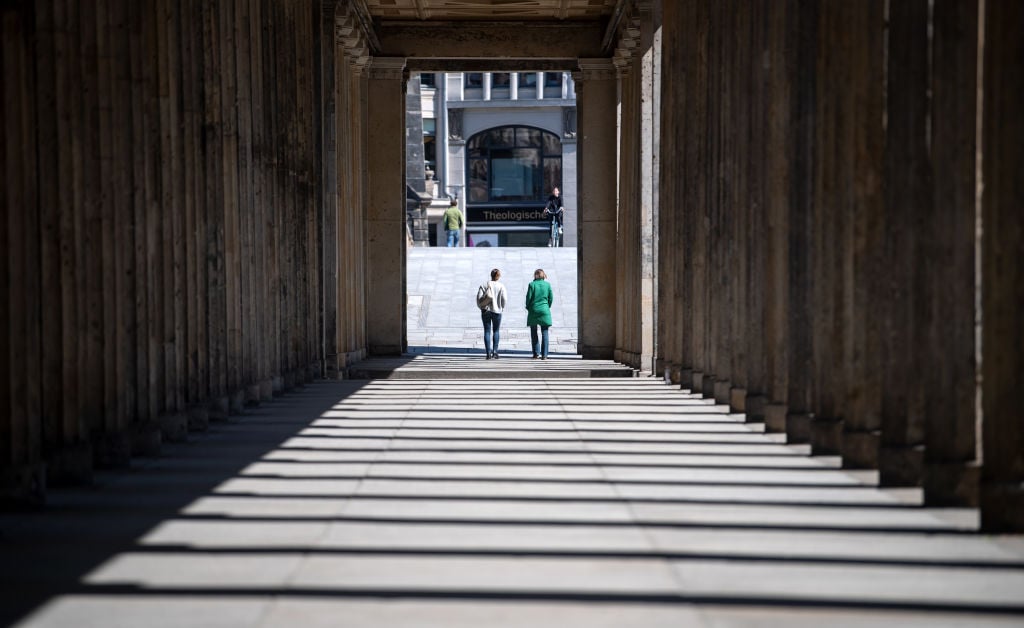
As authorities slowly ease lockdown restrictions in Germany, Berlin’s state museums and memorials will soon be able to reopen their doors—but in a very different landscape than before, governed by very different rules.
Museums within the state of Berlin—of which there are 170, ranging from private to municipal institutions—are planning to reopen on May 4, a representative for Berlin state museums confirmed by email. But the city’s mayor, Michael Müller, is remaining cautious. According to a report in Frankfurter Allgemeine Zeitung, he said there was no “general all-clear” and, echoing recent remarks from the German Chancellor Angela Merkel, described the situation as “very, very fragile.”
There have already been small signs of life in the city’s cultural sector. In the nearby state of Brandenburg, some small museums are allowing visitors. And on Monday, April 20, Berlin’s commercial galleries also began slowly reopening, with recommendations in place to enter one a time, wear a mask, and limit time spent inside.
The international art community is watching closely to gauge the effectiveness of these measures and to gain a sense of what the future may look like for other regions still on lockdown. The reopening of Berlin’s much larger and traditionally well-trafficked institutions will pose the biggest test yet.
“With a gradual and carefully organized re-opening of the museums, we can set an important sign for a slow but safe return to normality,” the German Association of Museums said in a recent statement. The group issued a list of recommendations for hygiene and safety, including plexiglass shields for ticketing desks, self-scanning tickets, ample disinfectant for employees, frequent cleaning of galleries, limited visitor numbers, and social distancing. To accommodate reduced visitor numbers and special time slots for at-risk audiences, the association is suggesting extending opening hours.
Similar recommendations have been adopted by the museum association for the now-reopened Brandenburg museums, which are also suspending group tours.
All these modifications will not come cheap, however. The “increased staffing requirements to implement distance and hygiene rules” combined with “lower income with reduced visitor numbers and the cancellation of events” will need to be taken into account, the German Association of Museums noted, adding that it is asking politicians and sponsors to support museums through the transition period.
Due to the guidelines in place, depending on the size of the museum, reopening could take longer than a few weeks. Berlin has several world-renowned museums, including the Hamburger Bahnhof, the Altes Museum, the Bodes Museum, and the Gemäldegalerie, which welcome millions of visitors each year.